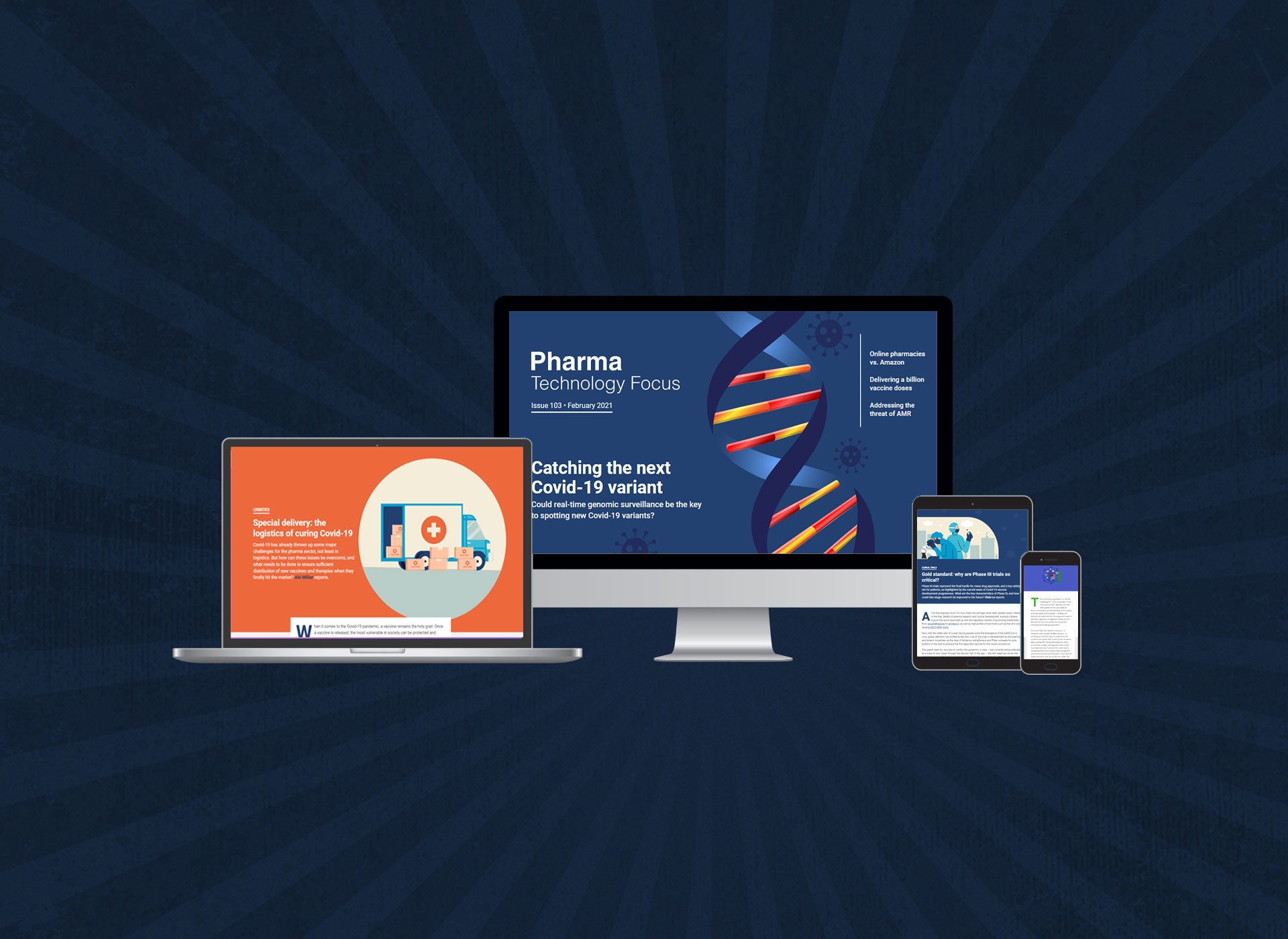
Pharma Technology Focus is now available on all devices. Read it for free here.
As with many things on this planet, viruses constantly evolve and adapt over time. While some of these new variants can disappear on their own, other mutations emerge and persist – creating serious public health problems. We have already seen multiple variants of the virus that causes Covid-19 documented in the UK, US, South Africa and Brazil.

Discover B2B Marketing That Performs
Combine business intelligence and editorial excellence to reach engaged professionals across 36 leading media platforms.
Understanding where these variants come from and how they spread is crucial for researchers, but how do you get the necessary data to answer these questions? In the UK, one solution has come in the form of whole genome sequencing of positive SARS-CoV-2 virus samples to map how Covid-19 spreads and evolves. The results, it is hoped, will help build a national real-time genomic surveillance system to help tackle the pandemic. But how do you track the evolution of a virus? We find out.
Also in this issue, we examine the ongoing ‘silent pandemic’ of anti-microbial resistance and the World Health Organization’s new approach to the problem, find out if the online pharmacy market is ready for the arrival of Amazon Pharmacy, and investigate the need for ‘honest brokers’ to help encourage communities of colour to accept a Covid-19 vaccine.
Plus, we find out exactly what it takes to deliver a billion vaccine doses to patients around the world and get the latest insight and analysis from GlobalData.
All this and more in this latest issue of Pharma Technology Focus.

US Tariffs are shifting - will you react or anticipate?
Don’t let policy changes catch you off guard. Stay proactive with real-time data and expert analysis.
By GlobalData
In this issue
Enter Amazon Pharmacy: the beginning of a great online pharmacy fight?
Two years after its acquisition of PillPack, Amazon has further expanded its presence in the US healthcare sector with the launch of Amazon Pharmacy. While the tech giant now dominates retail and has begun to disrupt other sectors, will Amazon be able to repeat this success and upset the pharmacy market too? Allie Nawrat reports.
Read the article here.
Covid-19 vaccines have made treating racism in medicine even more urgent
As Covid-19 lays bare the deep-rooted inequalities in Western healthcare, ‘honest brokers’ – members of ethnic minority groups who are knowledgeable about science and medicine – are heading into communities of colour to talk about genetics, genomics and testing. Chloe Kent finds out more.
Read the article here.
Could Covid-19 give pharma the chance for the ultimate image makeover?
The pharmaceutical industry has been one of the most-hated sectors globally for a long time now. But in a global pandemic, Big Pharma has ultimately become key to preserving our future. With politicians world-over promising prompt vaccine rollout and approval, could this be a key opportunity for the sector to salvage its reputation? Chloe Kent reports.
Read the article here.
Delivering a billion doses with the UK Vaccines Manufacturing and Innovation Centre
With multiple Covid-19 vaccines close to approval, the spotlight is on the logistics of delivering these vaccines to billions of people globally. Central to the UK’s strategy is to bring forward the opening date of the UK’s Vaccine Manufacturing and Innovation Centre. Abi Millar talks to VMIC founding board member and Cytiva director of innovation Daria Donati about the challenges ahead.
Read the article here.
Tackling the ‘silent pandemic’ of AMR: WHO launches the Global Leaders Group
The WHO has joined forced with the FAO and OIE to establish a new Global Leaders Group on AMR. With members including Merck CEO Kenneth Frazier, the Wellcome Trust’s Sir Jeremy Farrar and global government ministers, the group unites various stakeholders and aims to facilitate political discussions around the issue of AMR. Allie Nawrat digs deeper into this latest AMR initiative.
Read the article here.
Saxenda: profiling the first NHS weight loss drug for a decade
Novo Nordisk’s Saxenda has been recommended by the National Institute for Health and Care Excellence for use on the NHS in England for adults, making it the first pharmacotherapy to be endorsed by NICE for weight management in almost a decade. Abi Millar finds out more.
Read the article here.
Covid-19 mutations: how the UK’s real-time genomic surveillance could spot new variants
Research consortium COG-UK has been coordinating work across the UK to sequence the whole genome of the SARS-CoV-2 virus, which causes Covid-19, to inform public health responses to the country’s epidemic. Allie Nawrat explores COG-UK’s latest project to provide and accelerate real-time surveillance of Covid-19 outbreaks and vaccine deployment.
Read the article here.
A new hope for slowing disability in MS
ChariotMS will be the first multiple sclerosis clinical trial to include people who can’t walk. Natalie Healey talks to the MS Society about the trial and explores why new treatment options for patients with advanced stages of the illness are so desperately needed.
Read the article here.
Next issue preview
In the next issue of Pharma Technology Focus, we take a look at the controversial acquisition of the ‘HeLa’ cell line from Henrietta Lacks that has been a mainstay of the biotechnology industry for decades, and consult with legal experts to learn more about skinny labelling and the fine print of generics.
Also, we track the development of antibody-drug conjugates, explore the often-overlooked gastrointestinal symptoms associated with Covid-19, and learn how Ambien is being used to help unlock the mysteries of akinetic mutism.
Plus, we speak to Fusion about the future of radiopharmaceuticals in the fight against cancer, examine innovation in the HIV drug market as the competition for market dominance heats up, and investigate the issue of excluding pre-menopausal women from breast cancer trials.




